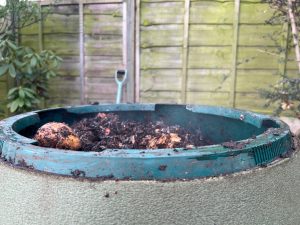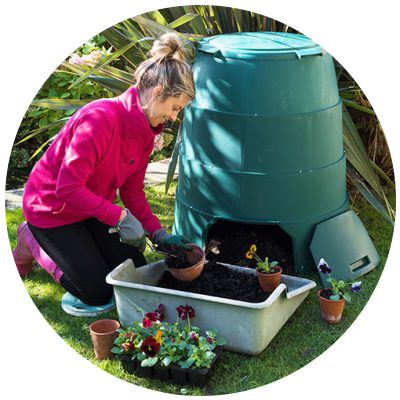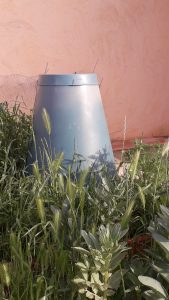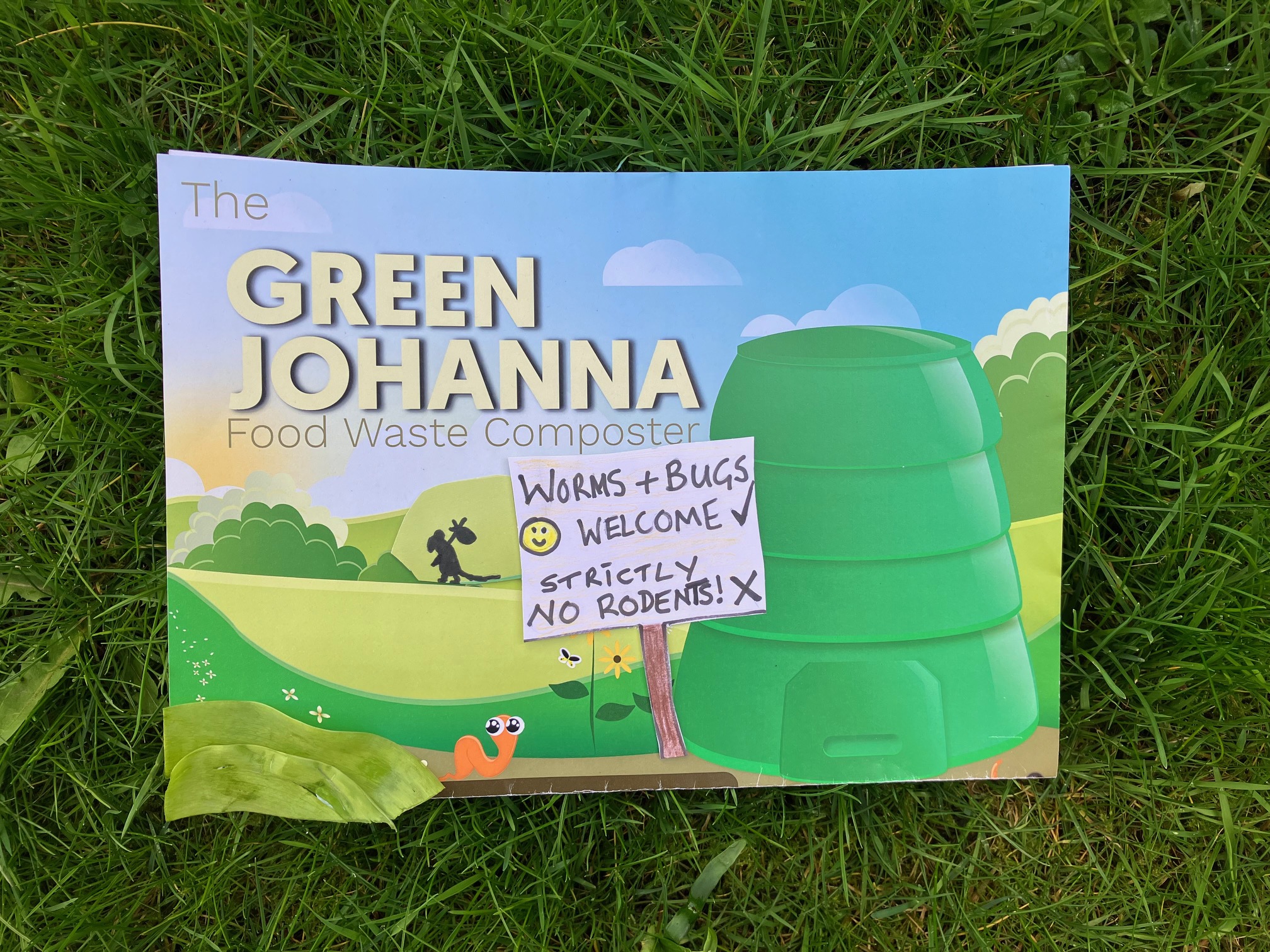Some of our customers claim the Green Johanna is rat-proof as they have never had any problems with these unwelcome visitors.
That is the experience of most people, but since rats have been known to chew through concrete, glass and even some metals nothing can really be called rat-proof.
However, there are steps you can take to deter rodents by making your compost bin and garden so unattractive to them that they will move on to a more accommodating environment.
If there’s a problem with rats locally it’s worth checking whether a neighbour is exacerbating the issue by leaving food out for wildlife. This was the experience of one of our customers, who discovered that his next-door neighbour was getting animal bones from a butcher and leaving them in his garden overnight to feed foxes. The neighbour even thoughtfully left his garden gate open at night to encourage visiting wildlife. But foxes weren’t the only ones coming round for a feast.
Such issues obviously need to be addressed first. If there is a persistent problem in your neighbourhood consider professional help to sort it out.
The Johanna has been designed to be as unwelcoming to rats as possible – the integrated base features small holes of 4.5 mm diameter so worms can easily come and go but rats are deterred.
Additionally, both the base and doors are secured to the bin with screws to make it difficult for rodents to dislodge them. The Johanna also has thicker wall sections than most other garden composters and is around two to three times heavier, making it more robust.
Using the Johanna’s Insulating Jacket also provides another layer of material, as well as providing insulation to keep temperatures high enough to discourage rats.
As part of the Green Johanna’s and the Green Cone’s five-year guarantee, Great Green Systems will replace any parts that suffer rodent damage.
Recommended deterrents:
- Discourage rats from making a home in your garden by sealing access under chicken houses, sheds or decking that can provide shelter for them.
- Keep your garden tidy and well maintained – check for anywhere that rats could burrow under or through.
- If you store bird feed or chicken food in the garden, make sure it is in lidded containers and kept off the ground. Sweep up any fallen birdseed as birds are messy feeders. Put paving slabs under a bird feeder so any fallen seed can be easily swept up.
- If you can, site your compost bin in an open, uncluttered area as rats hate being exposed. Open space makes them nervous. If you know there is a rodent problem locally, try to avoid siting the bin along fence lines or near log/brick piles and shrubbery or thick vegetation that provide protection for them. Rats have poor eyesight and use fences and walls to run alongside for direction.
- Protect the composter’s base – place paving slabs or bricks around the base. Placing thorny prunings around the composter will also make access difficult.
- Rats hate noise and being disturbed, so bang on the bin with sticks every time you go past so they get the message this is not a peaceful place.
- One customer recommends creating a stockade fence of bamboo sticks around composters. Push each stick into the ground as closely as possible (easier to do after rain).
- Keep the bin active. If you’re going away ask someone to keep your composting activity going for you so the bin is not left undisturbed for weeks.
- Make sure bins are not overflowing and food caddies are locked tight.
- Maintain drains – rats can come up through poorly maintained drains.
- Keep an eye out during bad weather and flooding as rats are likely to be on the move looking for shelter.

- Place builders’ mesh (available at DIY stores) underneath the composter. The Johanna already has an integrated base but mesh would provide an added deterrent.
- Rats hate strong smells so try planting mint round the bin or scatter chopped onion around – refresh the onion every few days.
- Make a spray using peppermint, eucalyptus or citronella essential oil – use one part essential oil and nine parts water in a spray bottle. Then spray this mixture around the edges of your garden.
- Also sprinkle chilli powder, cayenne pepper and cinnamon around as well as spreading lavender and bay tree cuttings around the base. The fermented contents of a bokashi bin are said to be a deterrent as rats dislike the sour smell.
- If you happen to have access to owl feathers then scatter them around your garden. Rats sense threats easily so feathers from their predators scare them.
- An obvious point but sometimes overlooked – be vigilant that you never drop any food waste around a composter, bin or food caddy.

With the Green Johanna:
- Keep temperatures in the bin high by adding the Insulating Jacket, regularly adding bokashi bran, and keeping the bin filled and aerated. Hot composting generally discourages rodents because of the heat and the fact that food scraps are quickly broken down.
- Ensure food waste is well chopped to provide more surface area for microbes and accelerate the breakdown process. Smaller pieces are also easier to stir and mix with garden and paper waste.
- When setting up the composter, wait until the composting process is well under way (after four weeks) before adding cooked food scraps.
- Cover additions of food waste with plenty of chopped-up woody garden waste, cardboard or dead leaves and aerate well. Cover with fresh compost or soil.
- Aerate composter contents regularly.
- Keep compost contents moist. Moisture levels should be around 50 per cent. You can use a moisture meter to check or do the sponge test – take a large handful of compost and squeeze. If one or two drops of liquid come out that is likely to be right – the compost should be the consistency of a wrung-out sponge. Add water if needed in summer months, preferably rainwater from a water butt.
With the Green Cone:

- Ensure that the top of the black basket and the bottom lip of the green outer cone are below ground level, so that any odours are filtered out into the surrounding soil.
- Never allow food waste to come higher than the top of the underground basket. Food waste should never reach as high as the Cone itself.
- Press builder’s mesh (available at DIY stores) into the soil of the hole you have dug for the black basket to provide an additional deterrent.
- Add accelerator powder regularly to boost the breakdown process.
- Ensure the Cone is in a sunny spot as the digester relies on solar energy to enable efficient digestion.


